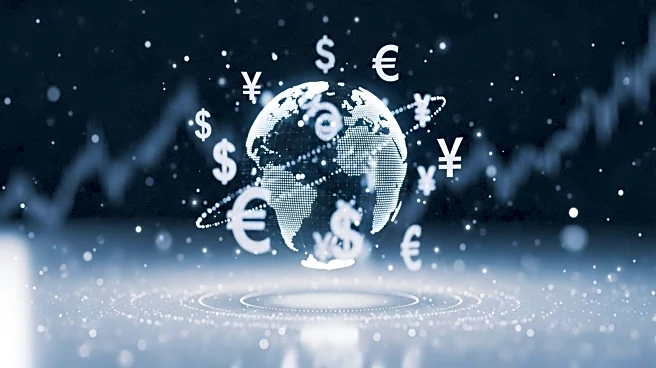What is the story about?
What's Happening?
Global currency trading volumes have reached a record $9.6 trillion per day, according to a survey by the Bank for International Settlements (BIS). This surge in trading activity is attributed to heightened market volatility following U.S. trade tariff announcements in April 2025. The U.S. dollar remains the most traded currency, although its depreciation has led to increased use of dollar forward contracts as investors seek to hedge against currency fluctuations. The survey also highlights the growing prominence of China's yuan in the FX market, while the British pound's share has declined. The BIS survey, conducted every three years, draws data from over 50 countries and reflects significant shifts in global currency trading dynamics.
Why It's Important?
The increase in global currency trading volumes underscores the impact of geopolitical events and economic policies on financial markets. The U.S. dollar's continued dominance, despite its depreciation, highlights its role as a global anchor currency. However, the rise of the yuan and the decline of the pound suggest shifting dynamics in the FX market, which could have long-term implications for global trade and investment flows. The surge in trading activity also reflects investor uncertainty and the need for effective risk management strategies in a volatile economic environment. These developments are crucial for financial institutions, policymakers, and investors as they navigate the complexities of the global financial system.
Beyond the Headlines
The evolving landscape of global currency trading raises questions about the future of the U.S. dollar as the world's primary reserve currency. The increasing share of the yuan in FX trading could signal a gradual shift towards a more multipolar currency system. Additionally, the decline in the pound's market share may prompt discussions about the UK's economic policies and its position in the global financial system. These trends could influence international economic relations and the strategic decisions of multinational corporations and governments.

















